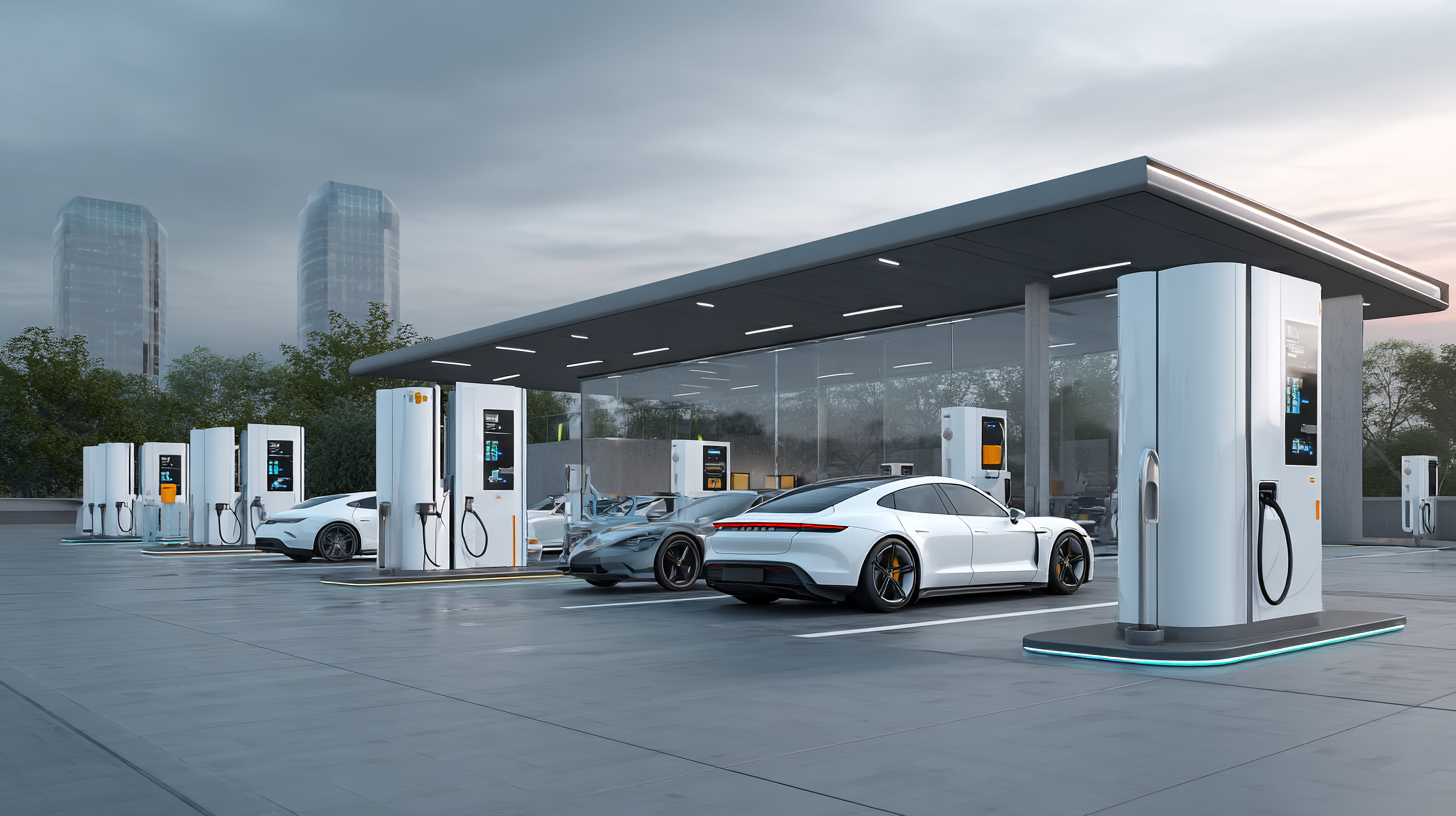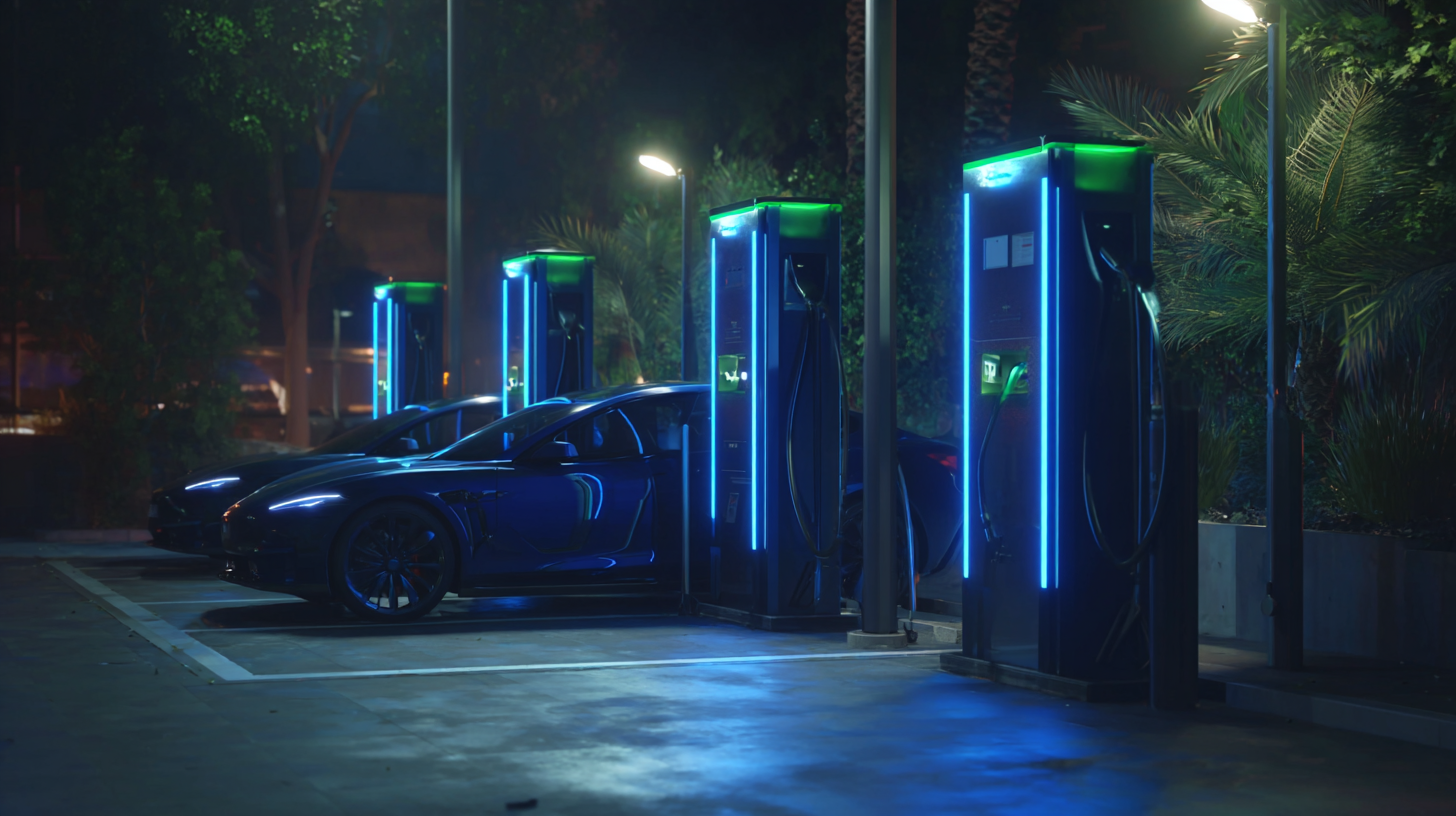The rapid proliferation of electric vehicles (EVs) in recent years has led to an increasing demand for advanced charging solutions, particularly Fast EV Chargers, which significantly reduce the time required for charging compared to standard options. According to a report by the International Energy Agency, the number of electric cars on the road surpassed 10 million in 2020, with projections indicating that this figure could reach as high as 145 million by 2030. This surge in EV adoption necessitates a corresponding enhancement in charging infrastructure; experts estimate that over 22 million public charging points will be needed globally to meet demand by 2025. As we look towards the future, innovative rapid charging technologies are being developed to address issues of speed, efficiency, and accessibility, making Fast EV Chargers not just a convenience, but a crucial component of the sustainable transportation ecosystem.

The landscape of electric vehicle (EV) charging technology is undergoing rapid transformation, driven by advancements in battery technology and the increasing demand for sustainable transportation solutions. Current trends highlight the importance of reducing charging times, with innovations such as ultra-fast charging stations capable of delivering a significant range of power in just minutes. These developments not only enhance the convenience for EV users but also address consumer concerns regarding range anxiety, thereby promoting wider adoption of electric vehicles.

Looking towards the future, we can expect to see the integration of smart charging solutions that utilize artificial intelligence and machine learning to optimize charging times and manage grid loads more efficiently. Additionally, the advancement of wireless charging technology presents an exciting prospect, potentially allowing vehicles to charge while in motion or at designated charging zones without the need for cumbersome cables. As the EV market continues growing, these technological advancements will play a crucial role in shaping a more sustainable and user-friendly charging ecosystem, making electric vehicles an increasingly attractive option for consumers worldwide.
Government policies play a pivotal role in shaping the landscape of electric vehicle (EV) charging infrastructure, impacting both the pace of development and the accessibility of charging solutions. In various regions, incentives such as tax breaks, grants, and subsidies for charging station installations encourage private investments and facilitate the expansion of charging networks. Moreover, stringent emission regulations are pressuring automakers to accelerate the rollout of electric models, further necessitating robust charging infrastructure to support the increasing number of EVs on the road.
Additionally, the establishment of national and regional targets for EV adoption is driving governments to prioritize investments in charging technology. Policies that promote the installation of fast-charging stations along highways and in urban areas not only enhance the convenience for EV users but also mitigate range anxiety—one of the significant barriers to EV adoption. By fostering collaboration between public and private sectors, government initiatives can create a synergistic effect, leading to a comprehensive and reliable charging ecosystem that supports the long-term transition to electric mobility.
| Country | Number of Charging Stations | Average Charging Time (minutes) | Government Incentives ($) | Yearly Growth Rate (%) |
|---|---|---|---|---|
| United States | 100,000 | 30 | 7,500 | 15 |
| Germany | 40,000 | 25 | 5,000 | 10 |
| China | 300,000 | 20 | 10,000 | 25 |
| Norway | 15,000 | 15 | 3,000 | 20 |
| United Kingdom | 30,000 | 35 | 4,500 | 12 |
The electric vehicle (EV) charging industry is witnessing unprecedented growth, driven by the surge in EV adoption and the urgent need for efficient charging solutions. According to recent market analysis, the U.S. EV market size, valued at $24.03 billion in 2020, is projected to grow from $28.24 billion in 2021 to a staggering $137.43 billion by 2028, exhibiting a compound annual growth rate (CAGR) of 25.4%. This rapid expansion underscores the critical role that advanced charging infrastructure will play in accommodating the increasing number of electric vehicles on the roads.
In parallel, the market for solar electric vehicle charging stations is expected to see a robust growth trajectory, with a projected CAGR of 15.2% during the forecast period. As investments in charging infrastructure escalate and EV sales continue to rise, these developments suggest a dynamic shift towards sustainable energy solutions for EV charging. Furthermore, the dynamic wireless electric vehicle charging market is anticipated to reach $7.2 billion by 2032, reflecting the innovative trends shaping the future of vehicle charging solutions. With such promising growth forecasts across various segments, the electric vehicle charging industry is on the cusp of transformation, paving the way for a cleaner and more efficient future.

As the demand for electric vehicles (EVs) continues to rise, innovations in rapid charging solutions play a crucial role in enhancing both efficiency and user experience. New technologies are emerging that significantly reduce charging times while ensuring compatibility across various vehicle models. For instance, advancements in ultra-fast charging stations, which can deliver up to 350 kW, are set to make recharging as quick and convenient as refueling a traditional gasoline vehicle. These innovations not only benefit drivers but also encourage wider adoption of EVs, contributing to a more sustainable future.
When utilizing rapid charging solutions, it's essential to consider a few tips to improve your experience. First, always check the charge point's availability through mobile apps or vehicle navigation systems to avoid frustration and save time. Secondly, familiarize yourself with the different types of chargers and their power outputs; knowing the specifications can help you choose the best option for your vehicle. Lastly, take advantage of loyalty programs offered by charging networks to earn rewards and discounts, making the transition to electric driving even more economical.
This bar chart illustrates the improvements in charging efficiency for electric vehicles over the past few years, highlighting the rapid advancements in charging solutions. The data reflects the average time (in minutes) taken to charge an electric vehicle to 80% capacity using various charging technologies.
As the global demand for electric vehicles (EVs) skyrockets, China's role in the production of efficient charging solutions becomes increasingly critical. According to the International Energy Agency (IEA), the number of electric cars on the road reached 10 million in 2020 and is projected to exceed 300 million by 2030. This surge necessitates robust infrastructure support, particularly in rapid charging technologies. China's advanced manufacturing capabilities allow it to cater to this booming market by producing charging equipment that meets both domestic and international standards.
China's dominance in the EV charging sector is underscored by its substantial investment in research and development. As reported by McKinsey, the country accounted for over 60% of the world's EV charging point installations in 2021. This strategic focus has led to innovations in charging speed and efficiency; for instance, China has pioneered ultra-fast chargers capable of replenishing an electric vehicle’s battery to 80% in just 30 minutes. Such advancements not only enhance the convenience for consumers but also contribute to fulfilling the increasing global demand for sustainable transportation solutions, positioning China as a leader in the future of electric vehicle charging infrastructure.








